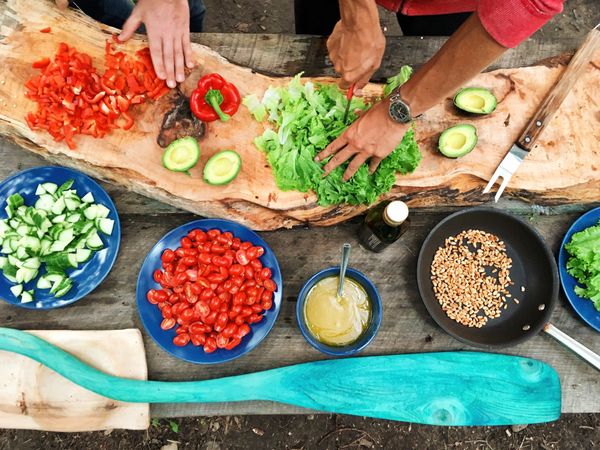Recently, Kroger grocery stores announced that they would be closing all 14 of their stores in the Triangle area. This is probably a super smart move on Kroger's behalf as, if you haven't noticed, North Raleigh has become absolutely swarmed with new grocery stores in the past couple of years.
Let's take Wake Forest Road for example:
Starting at the aforementioned going-out-of-business Kroger off of Wake Forest Road, on Six Forks Road, if you travel one block from there you will stumble upon a Costco. Travel two blocks from Costco on Wake Forest Road there is a brand new Wegmans grocery store being built. In that same shopping center where Wegmans is being built, there is already a very booming Trader Joe's. Travel a single mile from that Trader Joe's, still on Wake Forest Road, and you will come across an Aldi's. Then, about two blocks from that Aldi's you have a Walmart Supercenter and just in front of that Walmart, practically in the same parking lot, you have a brand new Lidl. Just across the road from Lidl is a tucked away Food Lion that hardly anyone knows is there.
Less than 10 minutes from all of these stores is the North Hills Shopping Center, which happens to have both a Super Target and a two-story Harris Teeter. Also, it is probably important to mention that there are several non-chain and international food stores littered throughout all of these places as well, bringing our total to about 15 different grocery stores.
The absolutely weirdest part about this whole ordeal is that if you start to travel too far South or too far West and the abundance of grocery stores just disappear. Now, South Raleigh has almost always been known as an area of concentrated lower income families but, perhaps, it is because the area is a total food desert.
Now, if your high school or college environmental science class is long gone from your memory, a food desert is not an area where there is literally no food. A food desert is defined as an area where there is a lack of affordable food that is both healthy and fresh. For an extreme instance, a food desert is a tiny little town where the only restaurant for miles is a McDonald's and the only groceries are bought at the local gas station attached to the corner store that isn't even a chain. The problem happening in North Raleigh, the opposite of a food desert, is called a food oasis.
So maybe you're starting the see the problem here — can a prominent, booming, well-populated city really be both a food desert and a food oasis at the same exact time???
Undeniably, yes. It is literally happening right before our very eyes here in Raleigh.
You can almost draw a line on a map where the food desert ends and the food oasis begins in Raleigh, splitting the city diagonally right through the heart of downtown.
My plea to grocery stores everywhere is simple: stop it with the food 'oases' and fix the food desert problem. If you start to provide quality stores in locations that truly need them then your company will be looked upon far more highly than if you're just throwing your store into a highly concentrated area for the simple capitalist competition of it all.



















